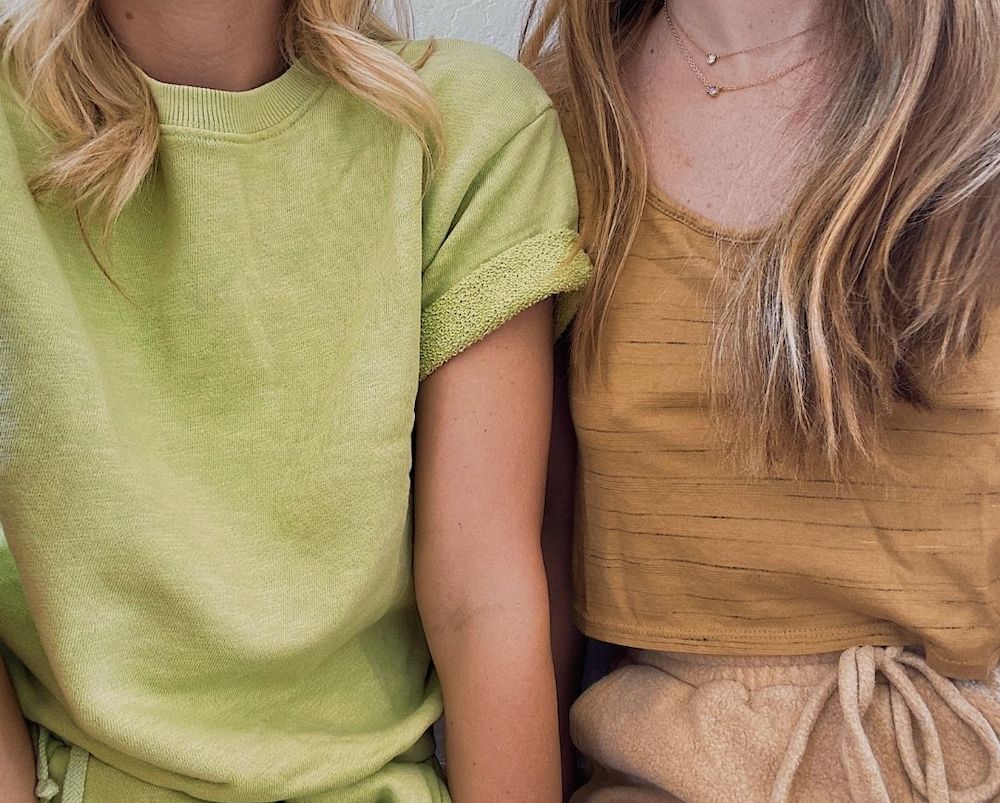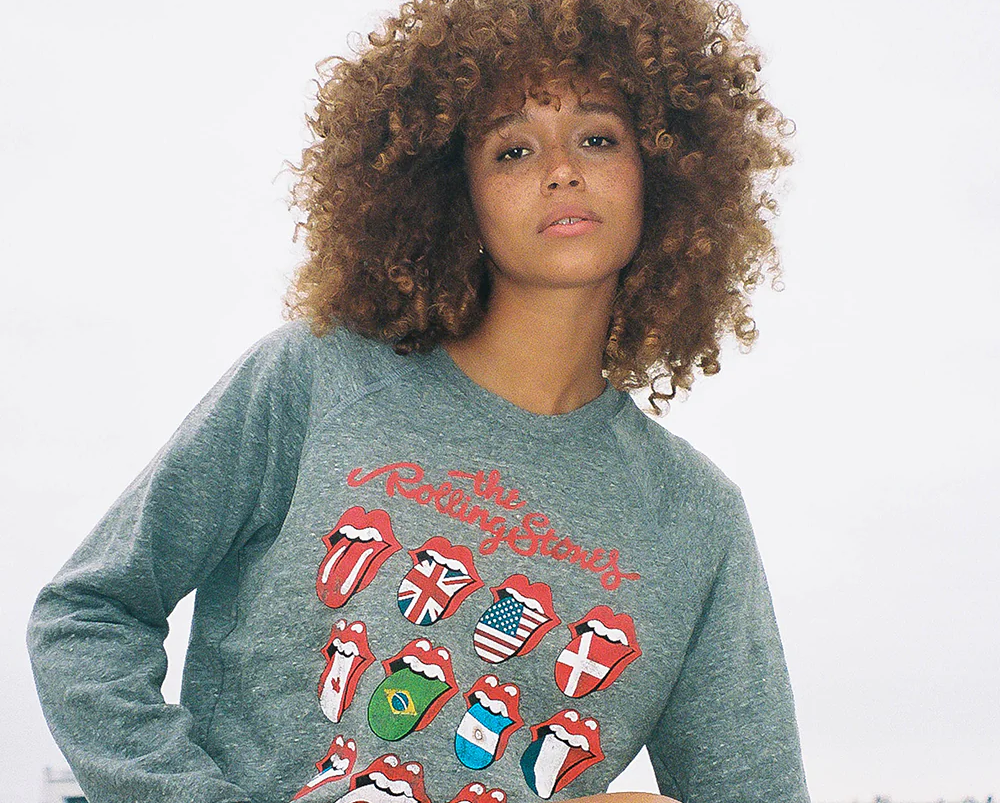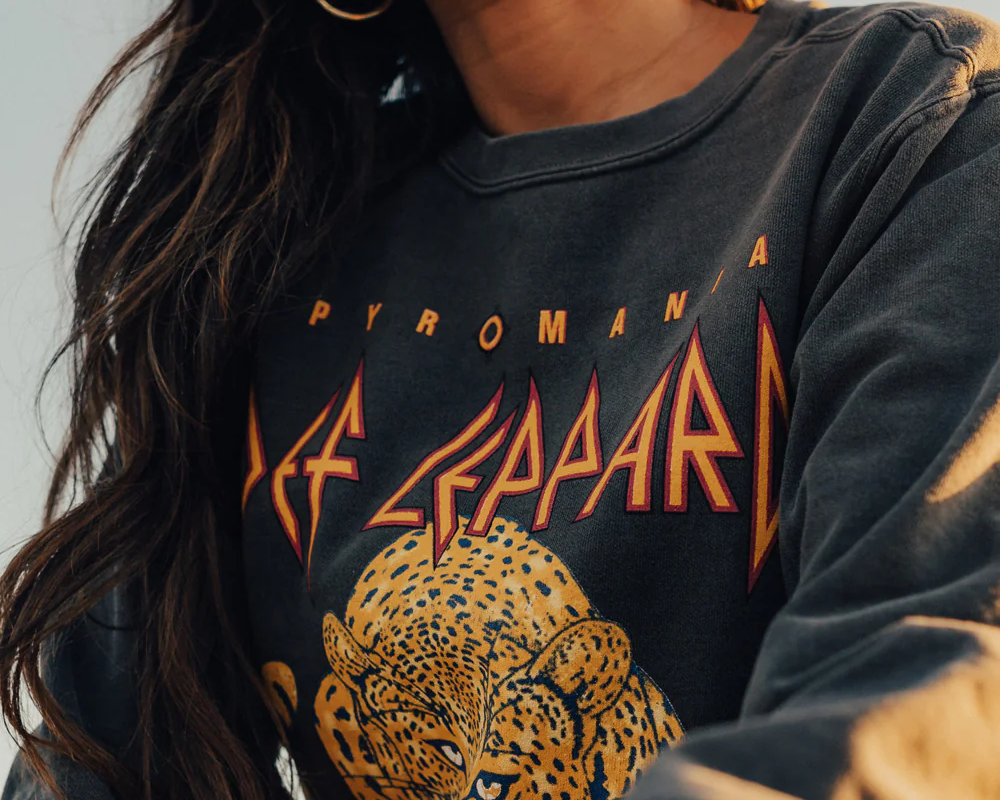In today's dynamic fashion landscape, more and more eco-friendly and sustainable brands are popping up. It seems as if every brand is looking to make environmentally conscious statements. Unfortunately, this trend has made it difficult to distinguish between companies adopting truly sustainable and ethical practices and others who are simply just "greenwashing."
If you haven't already heard of greenwashing, this term refers to brands that make misleading claims or exaggerated statements about their sustainability efforts.
At People of Leisure, we know how important it is for the conscious consumer to support brands that are truly part of the environmental movement. At the same time, we understand how misleading environmental claims can make it difficult to avoid falling for greenwashing tactics.
Let's talk about the greenwashing phenomenon and what to specifically look out for when shopping for sustainable fashion.
Understanding Greenwashing in Fashion
Eco-friendly. Organic. Natural. These are some of the ways many brands use deceptive marketing strategies to portray themselves as more environmentally responsible than they actually are. With many consumers looking for transparency from the brands they purchase from, it can sometimes be really difficult to distinguish the good from bad.
Why do Fashion Brands Make Green Claims?
It's not surprising that consumers are growing more attuned to climate change and becoming more aware of the fashion industry's impact on the environment. As a result, many brands are trying to stay relevant and appeal to consumer demand by turning to green marketing to mask their environmental shortcomings.
Yet despite their environmental claims, many don't have the track record to back them up. In fact, many brands prioritize image over action, investing more in portraying environmental friendliness rather than actually implementing tangible changes. It's obvious that engaging in green marketing is one way to mislead consumers in a quest for profit rather than genuine environmental stewardship.
Sadly, the greenwashing strategy is prevalent across industries. In fashion, however, greenwashing is far more subtle. Growing scrutiny of these sustainability claims have made conscious consumers wonder if their favorite brand’s apparent sustainable practices are legitimate - and we don't blame them.
How to Identify Greenwashing
You, as a consumer, play a pivotal role in holding brands accountable for their green claims. By understanding green marketing tactics, it’s possible to actively support genuinely sustainable brands and influence industry practices.
Here are some questions you can ask yourself to determine whether your favorite brand is as good as they claim to be:
Do they prioritize longevity or chase frequent releases?
A brand's commitment to lasting products over weekly new designs reflects its environmental consciousness. What materials are they using in their products?
Are recycled or certified organic materials prevalent in their collections?
Sustainable materials in one line don't guarantee sustainability. It's important that a sustainable brand be transparent on their supply chain. Where is their material being sourced from? How is it being made? Are they actively reducing water consumption? Are they using water safe dyes? Are they manufacturing excess material?
Do they address product disposal and waste management?
Responsible brands take ownership of their carbon footprint. Not only that, but they try not to over manufacture. Many sustainable brands focus on small batch manufacturing to eliminate waste.
Do they ensure fair wages for workers?
Ethical labor practices are an important ethical practice. Not only that, but what are the conditions these workers work in? Unfortunately, many brands are still manufacturing products in sweatshops around the world. Others are using cheap labor to reduce their costs.
If most of your answers lean towards 'no,' your favorite brand may not be as environmentally friendly as you thought. It might be time to consider exploring brands with genuine sustainability efforts.
Green Marketing Tactics: What to Watch Out For
Here are some ways to spot greenwashing tactics in fashion brands:
Unsubstantiated or Vague Claims
Watch out for ambiguous statements like "eco-friendly" or "sustainable" without clear evidence or specifics to back them up. They could be unsubstantiated claims.
In short, there needs to be some sort of evidence to back it up. Why is the material sustainable? What is the brand doing to reduce their carbon footprint. And no, offsetting emissions is not enough.
Misleading Imagery or Labels
Imagery can deceive all of us. Appealing images or labels that suggest eco-friendliness may not truly reflect a product's environmental impact.
Exaggerated Green Credentials
Be aware that brands might overstate their environmental efforts or inflate the environmental benefits of their products in order to portray themselves as a responsible company.
Hidden Trade-offs
Some products may claim eco-friendliness in one aspect but conceal negative impacts in other areas, such as labor practices or materials sourcing.
How to Avoid Greenwashing Traps
As conscious consumers, we have a responsibility to do our due diligence in an attempt to discern the honest claims from the superficial sustainability claims. Here are some ways you can be a more socially responsible shopper:
Educate Yourself
Familiarize yourself with terms such as "sustainable," "eco-friendly," and "green" to better discern genuine green practices from deceptive marketing tactics. Learn about different materials like 100% organic cotton or hemp fabrics and how they can reduce our carbon footprint.
Investigate Claims
Look for evidence backing up environmental claims. Seek out certifications or third-party endorsements that validate a brand's sustainability practices. Many brands that hold B Corp Certifications have gone through rigorous assessment of their social and environmental impact. This assessment takes years to complete and brands certified must be regularly assessed.
At the moment, People of Leisure is in the process of becoming B Corp Certified.
Question Vague Statements
If you're not sure, ask! Ask for specific details when brands make broad environmental claims without offering concrete information. If you're generally confused about whether a brand is sustainable or not, it's likely not.
Consistency Check
Evaluate if the company's practices align with its green image across all aspects of its business operations. This means that they must be equally transparent about their sustainable efforts as much as their social.
The Power of Consumer Awareness
At the end of the day, we as consumers hold the key to driving meaningful change. Being aware of greenwashing tactics is one way to make informed choices, ensuring your purchases align with your environmental values is another. Furthermore, supporting brands that genuinely prioritize sustainability encourages industry-wide changes and promotes a more eco-conscious fashion landscape.
Embracing Sustainability: Our Commitment to the Climate Crisis
At People of Leisure, we practice what we preach.
Our commitment to sustainability is embodied in the UN Sustainable Development Goals and we recognize our responsibility to not only create conscious clothing, but to also share our journey of reducing our social and environmental impact. At the heart of our business operations, we strive to have a positive impact on the planet and its people.
Embracing slow fashion is one way we embody our commitment to the earth. We also repurpose materials, source sustainable fabrics, and use low-impact dyes. In fact, our journey began by rescuing deadstock fabrics destined for landfills. As time passed, our eco-friendly practices evolved and we now integrate sustainable materials like hemp and organic cotton into our collections too. Producing clothing in limited quantities allows us to celebrate individuality while contributing positively to the environment: it's a win-win situation.
Looking forward: Becoming the Best Version of Ourselves
Sussing out which sustainability claims are legit and which ones are a product of greenwashing isn't easy. It takes effort, dedication, and a deep commitment to truly want to reduce carbon emissions and change the world as much as possible. That said, we hope you'll join us as we embrace slow fashion and strive to become the best version of yourself.






